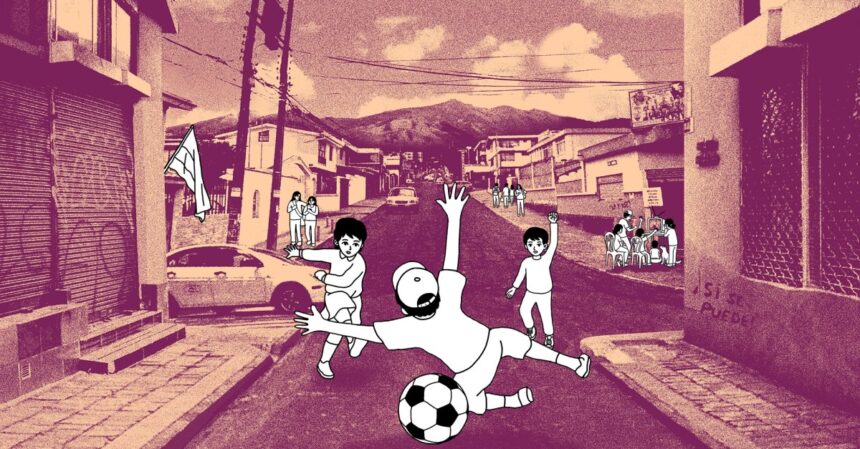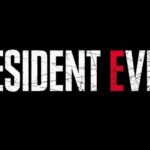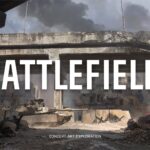One of many nice magic tips of artwork — or maybe simply of the human mind — is the flexibility to transmute one thing hyper-specific and private into one thing common. Despelote is an autobiographical, semi-documentary recreation about being a child in Ecuador through the nation’s first profitable qualifying run for the 2002 World Cup. It’s additionally only a recreation concerning the totality of being a child: the play, the boredom, the obsession, the myth-making, the outsiders’ view of the grownup world, and the best way that grownup world informs the whole lot about who you’re. It’s actually lovely.
Despelote is by Julián Cordero and Sebastian Valbuena. It’s primarily based on Cordero’s childhood in Ecuador’s capital metropolis, Quito, and his intense relationship — a lot of the nation’s intense relationship, on the time — with soccer (which, for the remainder of this text, I’ll name soccer, like the remainder of the world outdoors of the U.S. does). It’s a reminiscence piece, then — however reminiscence is a tough factor. Late within the recreation, Cordero admits in a voiceover that Ecuador’s profitable qualification for the World Cup is his first reminiscence, from when he was 4. His reminiscence of it’s vivid, however he needs it was extra expansive — so, within the recreation, he’s eight. Despelote is the reminiscence he needs he had.
Nonetheless, it’s communicated with an authenticity and element that’s utterly immersive. Despelote is a brief, deceptively easy first-person narrative recreation that takes a few hours to play. (It’s accessible now on Steam, Xbox, and PlayStation, with a Swap model coming quickly.) As Julián, you roam your loved ones residence, the varsity, and the native park, kicking a ball round with your mates. You attend a marriage, punting balloons on the ceiling followers; you eavesdrop in your mother and father’ conversations; you play hide-and-seek along with your sister. Your mother drags you locations, sends you out, orders you residence, asks you to remain put.

Picture: Julián Cordero, Sebastian Valbuena/Panic
It’s the late summer season of 2001 and the entire of Quito is obsessive about Ecuador’s sequence of qualifying matches in opposition to different South American nations. Julián’s reminiscence hops from one match to the following, however slightly than being the main target of the motion, the matches are an ever-present context that hums within the environment of the town; video footage performs on TVs in store home windows whereas grown-ups all over the place focus on the technique and the scoreline.
As a child, Julián’s relationship with the game of soccer is extra tactile. He kicks. Cordero and Valbuena have designed a sensationally fluid and intuitive first-person footballing management scheme, with dribbling that’s computerized however nonetheless requires finesse (particularly when working with R2), and kicks delivered by holding and flicking the best stick. The system works simply as properly within the top-down soccer online game that Julián performs on his console at residence, Tino Tini’s Soccer 99 (an homage to the 1993 Britsoft traditional Dino Dini’s Soccer). This extraordinarily playable and enjoyable recreation inside a recreation is stunningly deployed in a sequence of gradual however arresting perspective shifts that ambiguously blur the traces between creator, participant, and avatar. As Tino Tini’s Soccer eats into younger Julián’s life, so Despelote, a recreation an older Julián made about his life, eats into ours.
Regardless of the sport’s tiny scope and finances, its rendition of 2001 Quito feels enveloping and totally realized. Visually, it’s composed of low-poly 3D fashions rendered in a grainy, pastel monochrome, like a zine print, with merely however vividly cartooned 2D black-and-white figures representing individuals and necessary issues. It’s like a hazy {photograph} superimposed with a toddler’s understanding of what’s necessary. Sensible audio design attracts you deeper into this world, constructing the town up as a wash of ambient noise and layers of overlapping dialogue about life in Ecuador because it faces each monetary disaster and a shot at sporting glory. The result’s impressionistic, but additionally genuinely realist — as in, grounded within the actuality of our world — in a approach few video video games can obtain. Enjoying it, you’re feeling as should you’ve been transported to a distinct time and place.

Picture: Julián Cordero, Sebastian Valbuena/Panic
That’s to not say that Despelote stays in the identical time and place, both. Like a few of its snappy narrative indie forebears — significantly Blendo Video games’ jump-cutting mini masterpiece, Thirty Flights of Loving — Despelote deploys cinematic modifying and juxtaposition to nice impact. (Cinema is in Cordero’s blood; his father Sebastián directed the 1999 crime movie Ratas, Ratones, Rateros that was the primary Ecuadorian film to get recognition at worldwide movie festivals. His mother and father may be heard chatting concerning the state of Ecuadorian movie within the recreation.) Sometimes, the sport jumps ahead in time to the experiences of a extra rootless teenage Julián; later, Despelote smashes down the fourth wall to take a documentary take a look at the mechanics of its personal making.
So sure, amongst different issues, Despelote is a meditation on the artistic course of, a remembered documentary on life in turn-of-the-millennium Ecuador, and a playable essay on the best way sport connects to each people and societies. Above all that, although, it’s a recreation about being a child, kicking a ball, and watching it sail into the long run. It’s a marvel.








